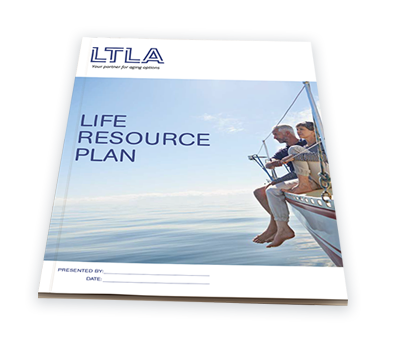
FAQs
What is Assisted Living?
Assisted Living is one of the levels of care offered to seniors. It is best suited for seniors who need assistance with daily tasks, but are not dependent on others for medical aid. Assisted living communities offer some amount of freedom and privacy to residents while eliminating daily tasks such as cooking, washing dishes, doing the laundry and other daily chores.
What can one expect from an assisted living community?
Typically, assisted living communities are licensed to provide low, medium or high levels of care depending on the resident’s needs. In addition to the usual tasks such as meal service and round-the-clock supervision, residents can get help with transportation, postal services, social and spiritual gatherings, exercise programs, emergency medical care, etc.
What kind of research should I do?
In this ever-changing, fast-paced world, you can never know too much about senior care. Research typically includes reading books, blogs, reports and articles online; talking to friends and family whose loved ones are living in a retirement community; and visiting several senior care communities. It is crucial that you understand the philosophy of each community you are considering as that largely reveals how they address a senior’s health, nutrition, religion, political beliefs, comfort levels, etc. Ask yourself if this philosophy corresponds with your senior’s personality.
Is there a cost for our service?
NO! Adult Care Advisors is a free referral service. Our goal is to help you achieve the best care placement for your loved one, and we hold your hand through the entire process. We use our resources to find the kind of care best suited to your loved one’s need—whether a home health aide because you or your loved one always wanted to stay at home or an assisted living facility in which a senior will experience social interaction. Families are going through enough at this point in their lives, and we do not want them to incur any additional expenses. We are reimbursed from the community in which a client is placed. We receive the same amount from each community and do not receive a fee if you go to a community that was not one of our recommendations. Even then, have the satisfaction of having helped you through a difficult time.
What are things you should know about independent living communities?
Independent Living is a particularly popular long-term care option for those above 55 years of age. It is a housing arrangement designed specifically for seniors who don’t require constant medical care. Independent living communities usually offer plenty of useful services and amenities to improve the quality of life of residents. Transportation, laundry services and regular low-impact workouts are often taken care of. There are several kinds of independent living communities with different housing arrangements: Subsidized Senior Housing, Senior Apartments, Retirement Communities and Continuing Care Retirement Communities. The cost of independent living needs to be carefully considered. Between long waiting lists, initial investments and monthly fees, prepare to manage your time and finances well.
What level of community does my loved one need?
The range of care options available today make choosing the right adult care community challenging. The below descriptions of the various levels of available care may be a start in helping you choose the right option for your loved one and help him or her comfortably transition into this new lifestyle.
Continuing Care Retirement or Life Care communities are suited to seniors who need ongoing supervision and care. Residents have the freedom to move among levels of care within the community—from independent living to a nursing home facility—depending on their needs.
Assisted Living communities are those in which the caregivers monitor the residents’ activities so as to ensure their health, safety, and overall well-being.
Communities dedicated to Alzheimer’s care encourage the elderly to develop personal connections. Efforts are made to minimize the frightening nature of memory loss.
Independent Living communities are ideal for seniors looking for a maintenance-free from daily personal assistance or monitoring.
Nursing Homes (or Sub Acute Rehab-Skilled Nursing facilities) are staffed by certified physicians, physical therapists, dieticians and recreational therapists to maintain the patient’s safety and quality of life.
What are some questions to ask when touring an assisted living community?
Looking for an assisted living community that is ideal for your senior is challenging. You want to find the best care available; what’s more, it has to be within a suitable price range. As you tour assisted living communities, be sure to ask lots of questions. Some of the most important ones include:
- Do you transport to local doctor appointments, or are there doctors that visit the community?
- What types of senior care services does this community offer?
- What activities and trips do you offer to members of the community?
- Do you offer respite stays to try out and get a feel for the community?
- What makes this community different from other assisted living communities?
- What are the qualifications of the nursing staff?
What is the “Best” assisted living?
No one can claim to have found the best assisted living facility, only the best one for their loved one. While your friend may recommend the ‘best’ assisted living community for her elderly father, and it is right down the street from your mother’s current home, that community may or may not be perfectly suited to your mother’s situation, issues or needs. After all, every individual is different. The best environment for your mother is one in which she will be comfortable, safe, happy and well monitored by caring staff.
The assisted living community model is relatively new and designed to serve the changing needs of a society that is aging, but living healthy, longer lives. Throughout the country, adult children regularly juggle two-career households, raise children, get advanced degrees—all while attempting to meet the needs of their aging parents who prefer to live as independently as possible. Assisted living communities are designed to fill that gap and they come in a wide variety of options.
What are some of the challenges seniors and their families face when a loved one transitions to n assisted living?
Anticipating the possibility of transitioning to an assisted living community can cause varied reactions from both seniors their family caregivers. These may include but are not limited to:
Anger – When a senior has been living independently and has to transition to assisted living, the individual may become angry. Anger is usually the result of hurt or fear, so it’s important to understand that the anger is about the situation not about the people involved.
Depression – Remember, there may be some grieving and sadness associated with transitioning to assisted living – especially if the change has occurred suddenly or as a result of a traumatic event. This sense of loss can be felt by both the senior and his or her family members.
Regression – Some seniors may find coping with the move to a facility so intimidating that they regress, or cease to do things for themselves that they are still capable of doing.
When behavior changes are apparent, it helps to determine the cause of the difficulty and strive to resolve it. Because the transition is in many cases overwhelming, the adjustment can often take time.

How to Know Your Aging Parent Can No Longer Live Alone at Home
It’s important to recognize the red flags that signal your aging parent may no longer be able to safely and independently live alone at home. Dina Frauwirth discusses some of the warning signs and recommends the steps you must take to get help.
Life Resource Plan
What is the best course of action for you and your loved one? Find out by talking to a consultant and creating a Life Resource Plan.



